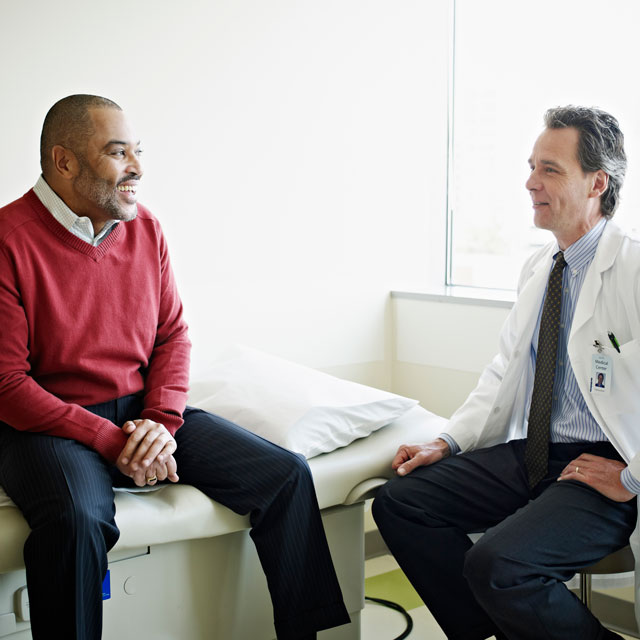If you’re getting out of town, here’s how to keep from bringing home an unwanted souvenir of illness.
Fall break is the perfect time to get away before the craziness of the holiday season begins. Unfortunately, it’s also when families tend to pick up a cold, the flu and COVID-19.
“We always see a surge in sick visits right after fall break,” said Dr. Lynn A. Holliday, assistant medical director for Vanderbilt Health Clinic at Walgreens and Vanderbilt Health Walk-In Clinics. “It’s almost like clockwork. In particular, we see a lot of upper respiratory viral infections — colds, flus, COVID-19 — when people return from traveling.”
If your family is headed out of town in the coming weeks, be sure to follow these tips for staying well during fall break so you don’t unintentionally bring home a bug.
Get your flu and COVID-19 shots
Vaccines are your first line of defense against the flu and COVID-19. The CDC recommends everyone ages 6 months and older get their flu shots and stay up to date on their COVID-19 vaccinations.
It takes about two weeks after receiving your flu or COVID-19 vaccine to reach maximum immunity. But don’t let an upcoming departure keep you from getting your shots.
“Even if you’re about to travel and think it’s too late, it’s still worth getting vaccinated,” Holliday said. “The protection builds up over two weeks, and some protection is better than nothing.”
Of course, even after vaccination, you’ll still need to take precautions when traveling.
Mask up on the airplane
Even though the federal government no longer mandates masking on planes, it’s a good idea, particularly on longer flights.
“While the air circulation on planes is good, a recent study has shown that the longer you’re on a flight, the higher the risk of spreading COVID-19, especially if masking isn’t enforced,” Holliday explained.
Wearing a mask while in the airport and on the plane remains one of the most effective ways to protect yourself and others from respiratory illnesses.
Wash your hands
Handwashing could reduce the spread of upper respiratory illness by 20% and diarrheal illness by 30%, according to the CDC. And yet, many people fail to wash properly — or wash their hands at all — when directed, including:
- After blowing your nose, coughing or sneezing.
- After using the toilet or changing a diaper.
- After touching an animal or cleaning up animal waste.
- Before and after preparing food.
- Before and after caring for someone who is sick.
- Before eating.
- Before and after touching your eyes or face.
To properly wash your hands, scrub with soap and water for at least 20 seconds, making sure to get between your fingers and under your nails. If soap and water aren’t available, use a hand sanitizer that contains at least 60% alcohol. Remember, hand sanitizer doesn’t eliminate all types of germs, so wash with soap and water whenever possible.
Don’t assume it’s allergies
If you or a family member has new symptoms of upper respiratory illness, such as a sudden onset of sore or scratchy throat, congestion or runny nose, consider staying home.
“We often hear people say they thought their cold symptoms were allergies,” Holliday said. “While allergy symptoms can start suddenly and be mild, so can cold symptoms. If you’re in the middle of your allergy season and suddenly get a scratchy throat, it’s more likely that it’s actually a viral infection.”
If staying home isn’t an option, be sure to wear a mask around others and wash or sanitize your hands frequently to avoid spreading germs to other travelers.
Stay hydrated
Travel, especially by plane, can be dehydrating. Carry a refillable water bottle and make sure everyone in your family drinks plenty of water. Staying hydrated helps support your immune system in fighting off illness.
Get enough rest
Lack of sleep can weaken your immune system, making it easier for you to get sick. While it can be tempting to pack as much fun as possible into your vacation, make sure everyone gets enough rest each night — especially children, who need more sleep than adults.
What to do if you do get sick
Most viral illnesses, such as colds and mild cases of the flu or COVID-19, can be managed at home with rest, hydration and over-the-counter medications to ease symptoms. However, there are times when it’s important to seek care at a clinic.
Individuals older than 50 and people with certain comorbidities, such as obesity, diabetes and kidney disease, should see their health care providers if they think they have the flu or COVID-19. Testing for both flu and COVID-19 can be done at home, but clinic-based tests are more accurate.
The key is getting in as soon as possible as antivirals must be started within three days of symptom onset for treating the flu and within five days to be effective at reducing your risk for severe illness from COVID-19.

The care right now that’s right for you
Vanderbilt Health is there to help you get better fast, offering dozens of locations with convenient hours throughout Middle Tennessee. These include 12 locations inside your neighborhood Walgreens and joint ventures with Williamson Medical Center. Find care from Vanderbilt experts closer to home with a variety of options and discover the one that’s right for you and your family.




